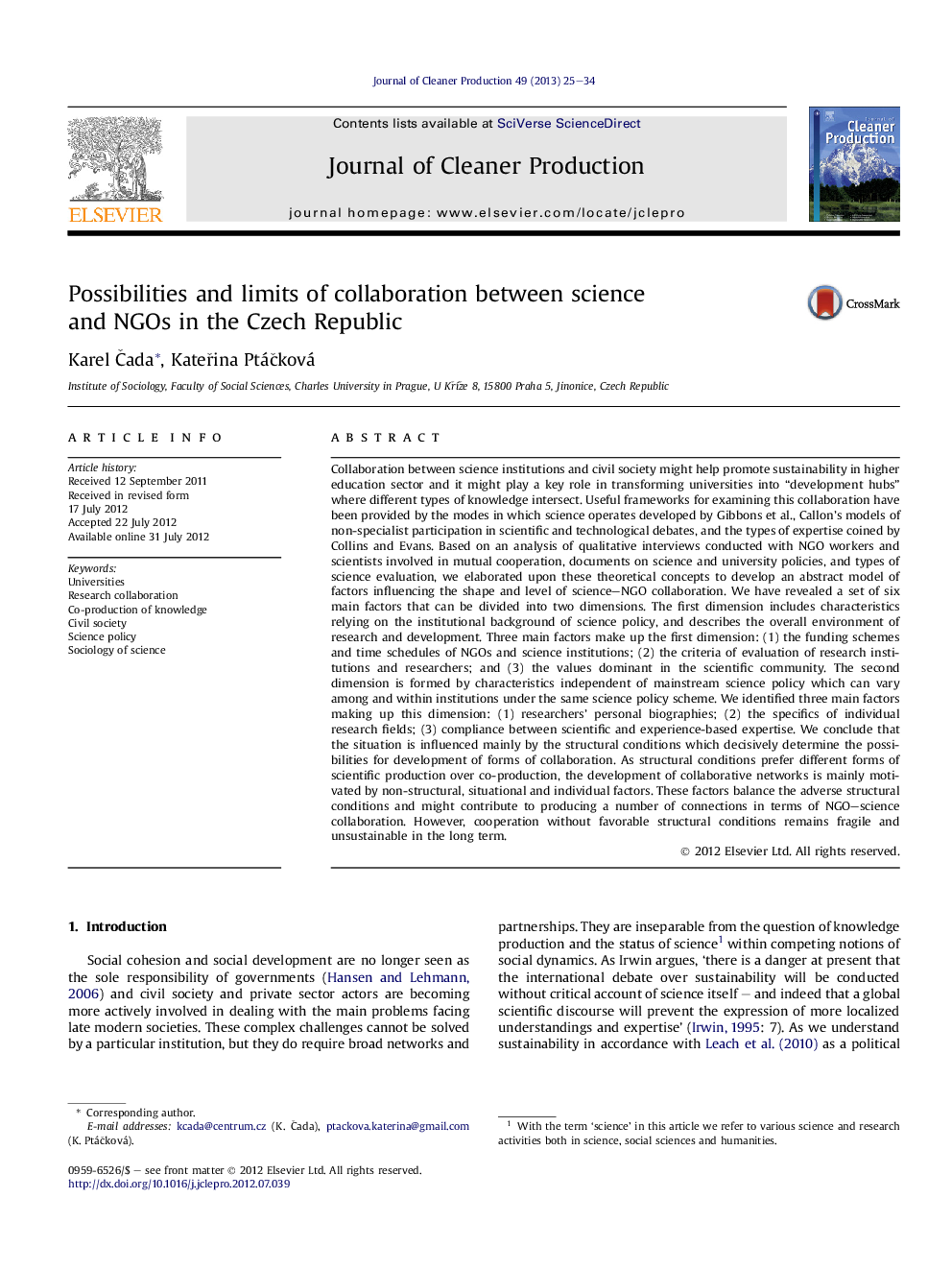| کد مقاله | کد نشریه | سال انتشار | مقاله انگلیسی | نسخه تمام متن |
|---|---|---|---|---|
| 1745377 | 1522197 | 2013 | 10 صفحه PDF | دانلود رایگان |

Collaboration between science institutions and civil society might help promote sustainability in higher education sector and it might play a key role in transforming universities into “development hubs” where different types of knowledge intersect. Useful frameworks for examining this collaboration have been provided by the modes in which science operates developed by Gibbons et al., Callon's models of non-specialist participation in scientific and technological debates, and the types of expertise coined by Collins and Evans. Based on an analysis of qualitative interviews conducted with NGO workers and scientists involved in mutual cooperation, documents on science and university policies, and types of science evaluation, we elaborated upon these theoretical concepts to develop an abstract model of factors influencing the shape and level of science–NGO collaboration. We have revealed a set of six main factors that can be divided into two dimensions. The first dimension includes characteristics relying on the institutional background of science policy, and describes the overall environment of research and development. Three main factors make up the first dimension: (1) the funding schemes and time schedules of NGOs and science institutions; (2) the criteria of evaluation of research institutions and researchers; and (3) the values dominant in the scientific community. The second dimension is formed by characteristics independent of mainstream science policy which can vary among and within institutions under the same science policy scheme. We identified three main factors making up this dimension: (1) researchers' personal biographies; (2) the specifics of individual research fields; (3) compliance between scientific and experience-based expertise. We conclude that the situation is influenced mainly by the structural conditions which decisively determine the possibilities for development of forms of collaboration. As structural conditions prefer different forms of scientific production over co-production, the development of collaborative networks is mainly motivated by non-structural, situational and individual factors. These factors balance the adverse structural conditions and might contribute to producing a number of connections in terms of NGO–science collaboration. However, cooperation without favorable structural conditions remains fragile and unsustainable in the long term.
► We describe factors influencing science–NGO collaboration in the Czech Republic.
► Institutional factors decisively determine the level and forms of collaboration.
► The institutional setting is not favorable to science–NGO collaboration.
► Existing collaboration results from the individual motivation of researchers.
► Collaboration established despite structural conditions is fragile and unsustainable.
Journal: Journal of Cleaner Production - Volume 49, June 2013, Pages 25–34